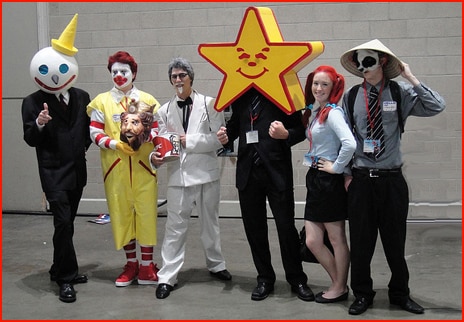
Barbara Ehrenreich has researched and written extensively about health issues. Nickel and Dimed in America, her book about the working class, commanded significant attention, and celebrates its 10th anniversary this year.
In a Facebook comment, Ehrenreich made a semi-facetious remark:
Obama has appointed G.E. CEO Jeffrey Immelt to head a new White House commission on job creation. Brilliant! If there’s one corporation that’s been synonymous with downsizing it’s G.E. Maybe the CEO of Coca Cola should lead the White House campaign against childhood obesity?
As if the very idea were absurd, that the CEO of Coca-Cola might be in charge of the anti-obesity movement. But isn’t that pretty much what’s already happened? There are some bad signs.
In the spring of 2010, some people were surprised and others were dismayed when Yale University has accepted $250,000 from PepsiCo to fund a graduate fellowship for research on nutrition and obesity-related diseases. This looks like a fox-guarding-the-henhouse situation. But Robert Alpern, dean of the School of Medicine, said not. As reported by Nikita Lalwani, the Dean explained,
We don’t see PepsiCo as an evil company. We feel [the gift] is perfectly ethical… A good analogy is the opinion that tobacco companies giving schools grants may promote cigarette smoking. A lot of schools won’t take tobacco money, [but] we don’t have a ban against taking money from anyone in the food industry.
Registered dieticians can now earn their Continuing Professional Education credits by attending a program created by the Coca-Cola Company. Apparently, the party line is that any concerns about unsafe, unhealthy food ingredients are “urban myths.” The presenter is Dr. Ronald Kleinman, and some people are looking askance because they believe that anyone who has earned a great deal of money from the food industry may not be impartial.
An unnamed author at the Alliance for Natural Health says of Dr. Kleinman,
Now he’s being sponsored by the Coca-Cola Company and telling dietitians that the ingredients in Coke which everyone is alarmed about are safe. The dietitians, in turn, will be telling parents that their fears are unfounded, and Coke can sell more Coke to kids.
There are rumors of nonprofit organizations being bought out. Save the Children got a $5 million grant from Pepsi, and with that in its pocket and the prospect of an additional grant from Coca-Cola, Save the Children dropped its advocacy of the soda-tax concept. Coincidence?
In “Childhood Obesity Conflicts of Interest,” Dr. Pretlow mentions the Shaping America’s Youth initiative, otherwise known as SAY. He writes,
SAY recently held town meetings all across the U.S. to promote healthy nutrition and physical activity in children, with the goal of eradicating the childhood obesity epidemic. The source of funding for these town meetings included Conagra Foods, QTC Group (a division of Pepsico), Cadbury Schweppes (a division of Kraft Foods), and Dr. Pepper Snapple Group (Dr. Pepper, 7UP, Canada Dry, RC Cola).
Should food corporations be sponsoring town meetings and childhood obesity conferences? Like it or not, they have already done so, over and over again. And, besides, who else can afford to lay out megabucks for such events?
The makers of processed junk food, pseudo-food, and foodlike substances pay for meetings and conferences, and all kinds of anti-obesity programs. Is it only right that they should open their wallets, in recompense for the harm they have caused? Or is it wrong for other anti-obesity warriors to touch their dirty money?
Your responses and feedback are welcome!
Source: “Critics fizz over Pepsi gift,” Yale Daily News, 03/29/10
Source: “Dietitians are Buying Coke’s Line: Sugar, Fluoride, Artificial Colors are SAFE for Children!,” Alliance for Natural Health – USA, 06/14/11
Source: “Childhood Obesity Conflicts of Interest,” Childhood Obesity News, 12/20/10
Image by popculturegeek.com, used under its Creative Commons license.

 FAQs and Media Requests:
FAQs and Media Requests: 











